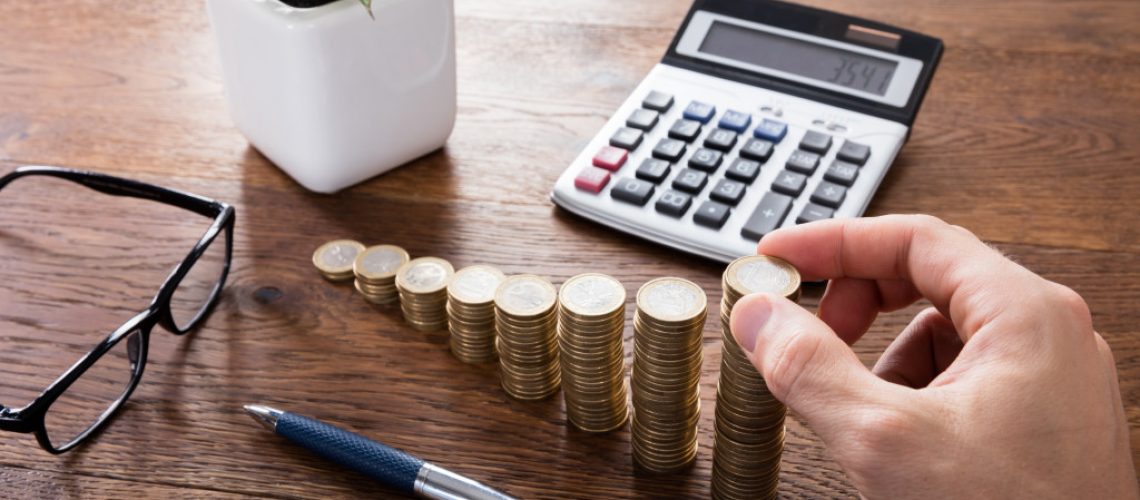The pandemic has changed every aspect of our lives, and the economy is not spared. The American economy has reached its fastest-growing inflation since 1982 because of the pandemic. Inflation now surges 7.5% annually. These high rates have a lot to do with credit card interests, mortgages, and other loans, making it more difficult and expensive for consumers to borrow.
This occurring inflation is being addressed by the Federal Reserve, promoting high percentages of employment and keeping prices and interest rates as moderate and as long as possible. However, the Fed has been attempting to increase interest rates to control it. In other words, they intend to raise interest rates to somehow hinder consumers and businesses from making high-risk purchases, which will also slow down the demands as the prices progress down.
Now, consumers should be willing to find ways to stay ahead of this inflation since no one’s expecting it to depreciate anytime soon. You have to be more responsible with rethinking your budget to get by with your finances. Here is how you can start:
Reassess Your Priorities
Since the pandemic still exists, it’s important to completely accept that our lives will never be the same. So, if you haven’t set your new normal, you can start now. Your priorities need reassessing so you can make sure that you’re spending on the most important things.
It’s always a good idea to sit this one down and think about your top valuable spending and where you’d like a part of your income to go, whether in an investment or a savings account. If you’re not living alone, it’s also important to gather every household member and communicate openly and clearly about each of your priorities.
Review the Prices of Your Necessities
Inflation affects consumer prices differently, and there is no one way to manage each of your expenses because everybody has different necessities. Therefore, you should look into your own personal finances and readjust your budget accordingly. You will likely be affected by rising costs, such as inflating prices of food and utilities.
If, for instance, you’re planning on purchasing a car or any kind of vehicle this year, you’ll have to review your local market so you can avoid the period when prices are highest, which can rise to 40%. Postponing your purchase may be a better idea if you’re not willing to pay with the inflation occurring.
Keep up on updates about spending prices in categories where you can learn how costs are getting higher in the next few months and years. Better yet, check in every quarter. Cut some costs if you have to.
If you’re planning on traveling, prices can be more complicated.
As you review the prices, perhaps you can also change your lifestyle a bit, such as your food intake. Practice more planning and less spending recklessly.
Get Rid of Unnecessary Fees and Subscriptions

You may be throwing money down the drain monthly because of subscriptions that down even serve you. Streaming services are the most common in this category. An average household can be spending around $50 to $60 per month. This may not seem like a lot, but it definitely costs you, especially per year.
Since we’re all trying to survive inflation, ditching worthless subscriptions will help a lot.
Boost Your Savings
As a consumer in this economy, one of the most basic—not to mention, one of the most important aspects of personal financing—is having at least one savings account. Allocating a part of your budget to your savings is undeniably a necessity. However, it is also undoubtedly difficult, given that only 39% of Americans can afford to cover a $1,000 emergency expense.
As you plan your finances, you should also be able to find ways to designate at least a small amount into your emergency funds. Starting small can lead to a healthy habit in personal financing, which can further improve in the future.
Consider Investing
Consider learning about investments before you proceed, and don’t immediately listen to other people regarding this because not everyone can benefit from an investment. You can also set aside money for a certain investment. The least you can do for a start is to observe the rates and conduct thorough research before you invest your money.
Some investments can be enticing because you’ve seen other people increasingly benefit from them, but this isn’t always the case. Therefore, careful planning and research are essential. Before jumping into a wealth-building opportunity, you must compare investment options and determine your risk tolerance to make an informed decision. For example, buying apartments as investment property is different from investing in stocks. There is no guarantee that your investment comes with high returns, but a property’s value appreciates over time, making it a sound investment. Another important thing is to make sure that the money you’re investing is just a portion of your overall total.
The Bottom Line
If every individual is responsible and smart about spending their money, they can help not only themselves but also the economy. The less they demand, the faster inflation subsides. But while it persists, consumers need to be more mindful of what’s happening in the economy.

